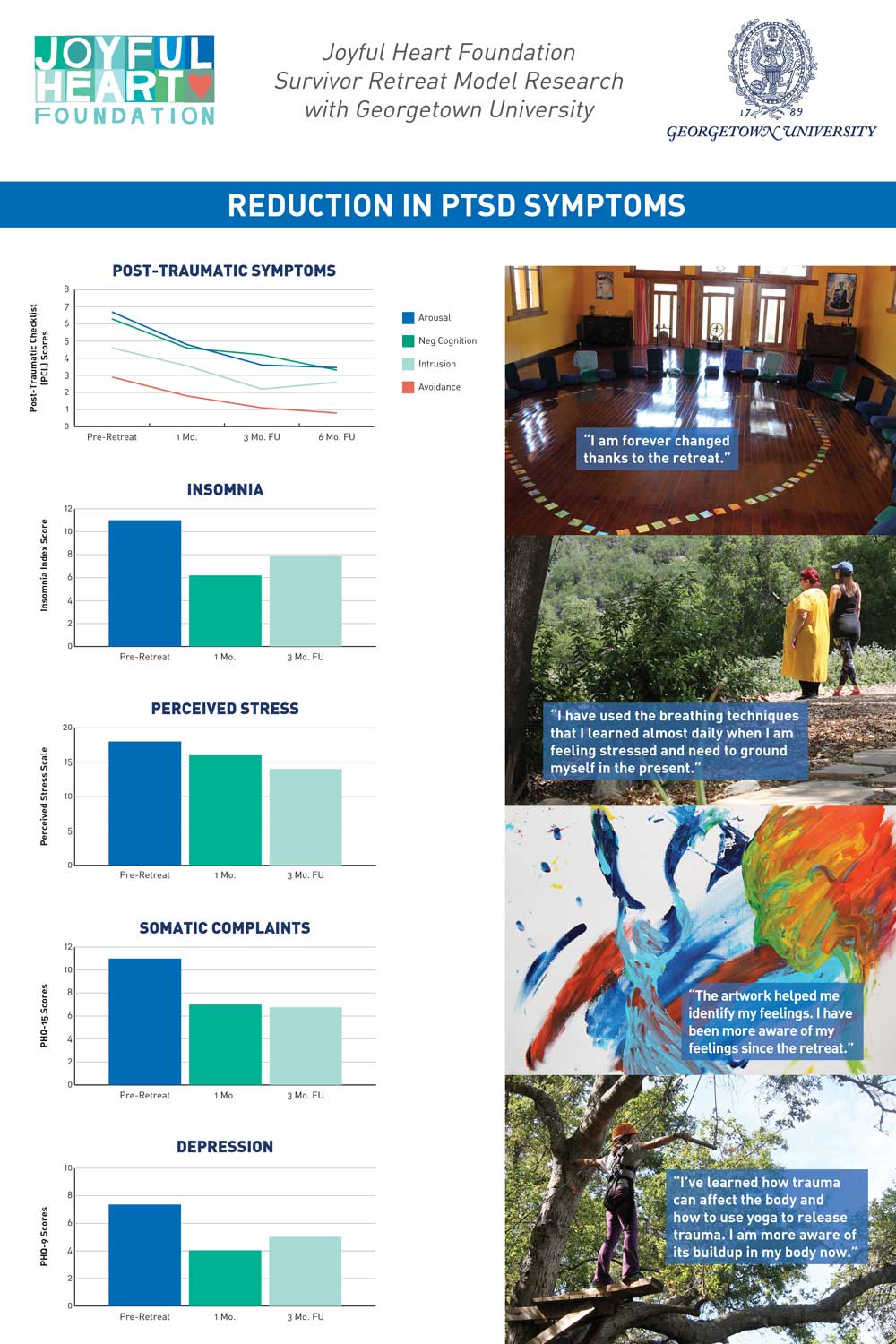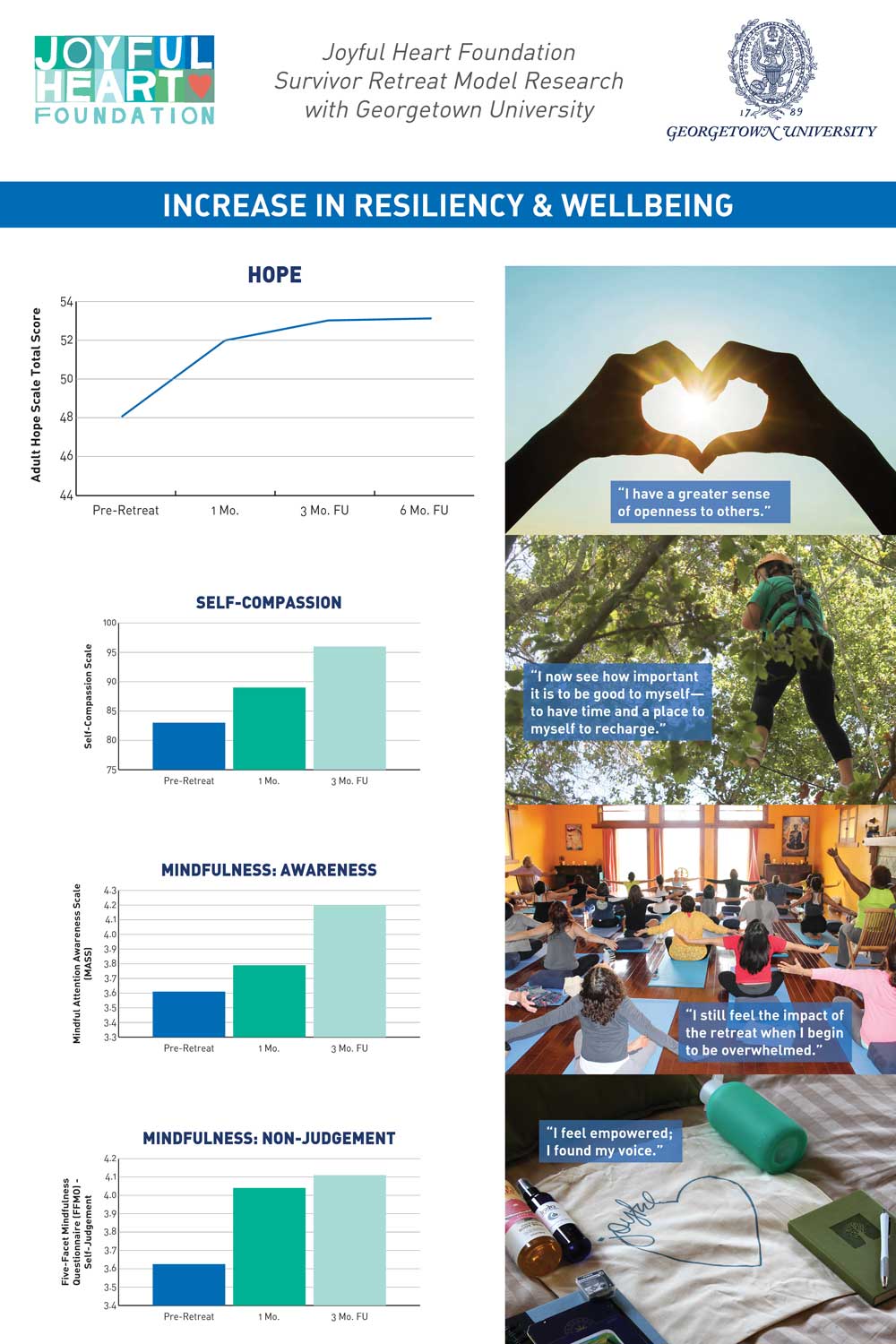You can leave this site quickly.
Learn more about Internet safety.
TALK San Francisco: Building Support for Survivors
On November 5th, Joyful Heart held our first TALK event in San Francisco at the home of Joyful Heart board member Beth Armstrong and her husband, Anthony. The discussion was part of a our TALK discussion series, aimed at gathering and engaging communities to explore a myriad of issues related to sexual assault, domestic violence and child abuse. The theme of this discussion was building support for holistic healing opportunities for survivors and healers. It was also an opportunity for Joyful Heart to share—for the first time—our initial findings from our ongoing research project to evaluate the impact of our signature retreat model and develop a replication plan for national dissemination.
Beth and Los Angeles Committee Member Elizabeth Cooper, the evening’s co-host, opened the evening with an invitation:
“We ask you to believe with us that change is possible. That healing is possible. And we hope that you take from this gathering a shared belief with us that: It is possible for survivors to not just survive their trauma—but to thrive, truly thrive—reclaiming what is rightfully theirs: their lives, their voices, their bodies, their spirits, and their joy.”
Joyful Heart’s Vice President of Clinical Programs, Sherisa Dahlgren, presented on our retreat model: a four-day retreat experience for survivors designed to holistically reboot participants' central nervous systems by addressing the physical, emotional and psychological impact of trauma, reducing the short and long term effects of this trauma, and ultimately laying the groundwork for participants to create healthy, permanent change in their own lives. Set within the context of a healing community, the model offers a body/mind/spirit approach to healing from trauma—one that draws upon the individual’s power to bring healing into their lives.
“At its core is the element of love and respect for one another. At its core it honors that each person has what they need already to heal. We don’t need to teach anyone to heal - and we don’t “heal” people. When people are given the space, support and information they need on both a biological and a psychosocial level then they naturally—and permanently—heal.”
- Sherisa Dahlgren
She went on to share initial findings from the research project, lead by Dr. Mary Ann Dutton at Georgetown University, including:
- A 50 percent reduction in PTSD symptoms, such as arousal, avoidance, fatigue and re-experiencing and that these results were maintained at the three- and six-month mark post-retreat
- A clinically significant rise inresiliency factors, such as hope and compassion, which increased immediately post-retreat and continue to rise at the three- and six-month mark


We are halfway through this research and at the end of this project we want to be able to offer this evidence informed model to the field. As Sherisa said:
“This project is not only about igniting healing and change in the lives of survivors we have had the opportunity to work with—but in contributing to a wave of change in our field, to make these healing options available and sustainable for organizations to offer.”
We were also joined by a survivor who shared her experience of the retreat:
"What I notice now is that I breathe. For so long I would be working—working and catch myself gasping for air, like I forgot how to breathe. After the retreat I find myself focusing on my breathing and when I do artwork as a way to release, I find myself letting out long sighs that help me relax and enjoy what I am doing.”
We left San Francisco committed to building more support for survivors and inspired by the possibilities that can take shape when we gather together to TALK. We can’t wait to share what comes next.




Your Voices